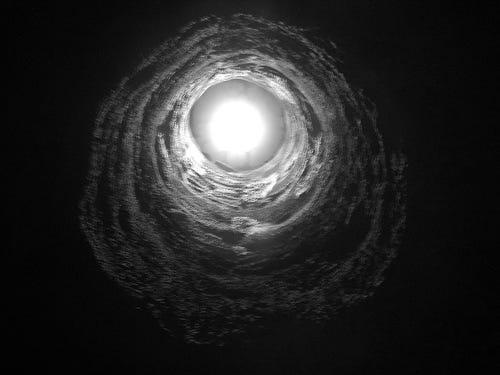Making Each Other Visible
What makes the story of Joseph so powerful is that throughout his life he finds himself in places where his well-being or even his life depends on factors outside his control. The whim of his tormentors or pure chance.
Hated by his brothers, Joseph is thrown into a deep pit from which he will be pulled up and sold as a slave to Ishmaelite traders. This terrible fate is actually his best case scenario considering that at first they planned to kill him and only at the insistence of Reuben not to shed his blood themselves did the brothers instead opt for the pit. We are told next that the “pit was empty and had no water”. Commentaries differ on whether this made matters better or worse. No water to drink or no water to drown in? The midrash, Rabbinic embellishment goes a different direction. Why does the Torah tell us an empty pit has no water if being empty means containing nothing - water or otherwise. We are told this so we know that water there was not but there were snakes and scorpions. Where do the Sages get this?
We find this teaching in the Talmud in an unexpected place: in the middle of the laws about Chanukah candles and where they must be placed in order to fulfill the mitzvah of Chanukah. There are technical reasons this short teaching finds itself there but the juxtaposition of this particular Biblical story and a holiday that isn’t even mentioned in the Hebrew Bible asks to be understood in a deeper way. The candles, we are told, must not be placed higher than a person’s eye would naturally look. In other words, a passerby would be able to see the flames without having to crane their neck and make an effort to look up. The purpose of the candles after all are to be seen so that the miracle of the oil is made public and we can give thanks to G*d for sustaining the Jewish people in our time of need.
What does this have to do with Joseph, the pit and the alleged poisonous creatures at the bottom? Just as something too high can escape the eyes of passersby, someone placed so low can fall out of view. In the case of Joseph, the brothers decided to put him in a pit rather than murder him, but they really didn’t care that he could have died anyway from the unseen dangers there. To place someone where they are not seen is already deadly.
If the menorah being in view helps publicize the miraculous way that G*d looked out for the Jewish people, then a person being unseen tells us that we are undoing that miracle by failing to attend in even a small way to the needs of others created in G*d’s image. To render someone invisible, force them out of sight is well on the way to being in mortal danger.
Joseph in fact survives, rescued as it were by being sold into slavery in Egypt where he is destined to rise and fall and eventually be placed in a position of unmatched prominence. Looked to by the entire world with the power to provide and withhold life-giving sustenance. The teaching of the midrash however makes clear that his story could have been cut short right then and there. That disappearing from view even once could have been enough to end his life.
Who are the Josephs stuck in the pit right now? Who has fallen out of view. With or without intention, who has become invisible in our society? Whose lives are endangered by the toxic bite of negligence and isolation. How do we kindle the lights of kindness, justice, and dignity to make well-known the great miracle that happens wherever we lift up the image of G*d in each of us?



